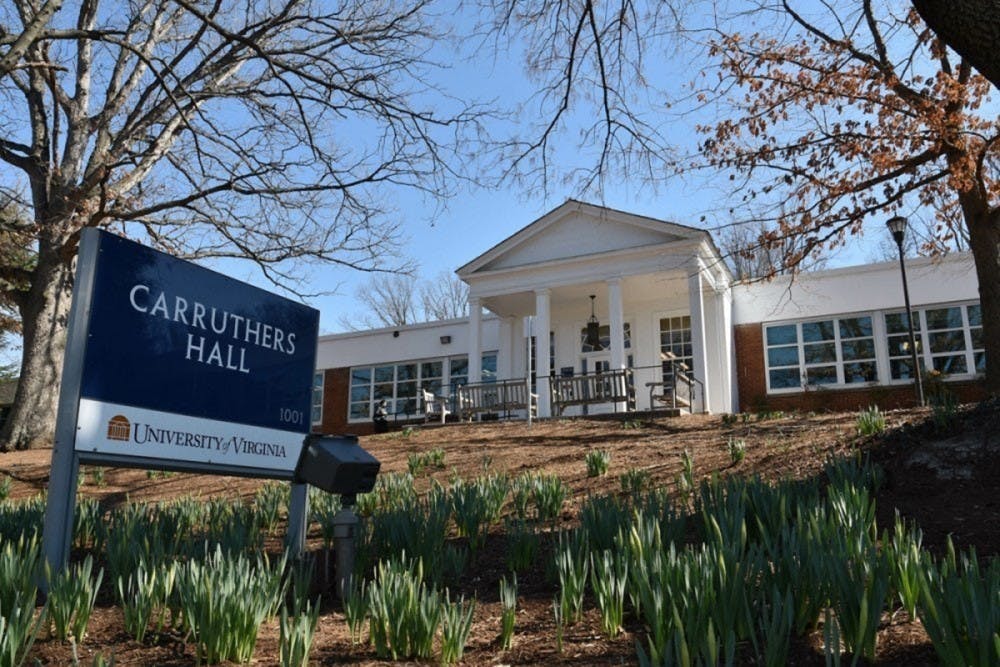On Aug. 5, DACA students at the University and members of U.Va. DREAMers on Grounds received an email about the University’s decision to allow DACA students to be eligible for financial aid through Access UVA. With this decision, the University has made a critical step forward in the inclusion of DREAMers on Grounds. Hopefully, this will be only the first step in making sure undocumented students have a place here at the University.
DACA, or Deferred Action for Childhood Arrivals, serves people who are undocumented and came to the United States before the age of 16. The Obama-era policy allows these people to obtain work permits, drivers licenses and go to college, among other things. DREAMers, or those protected under this policy, are able to receive in-state tuition at the University but were not able to enroll in financial aid before this new announcement.
The student advocacy group DREAMers on Grounds released a response to this decision Aug. 6, noting that the policy will provide “tremendous relief,” for many, but that President Jim Ryan must consider providing more institutional support for undocumented students at the University. In fact, the group stated, “if ‘our community is stronger’ with affordability for undocumented students, then allow all undocumented students to matriculate and provide them with institutional aid as well.”
With the Trump administration’s termination of the DACA program, the financial aid policy can only help a limited number of students. In the fall of 2017, the Trump administration repealed DACA but still allows for those enrolled in the program to apply for renewal before its repeal. According to the original policy, enrollment in the program lasts only two years, but there is no limit to the amount of times a person may renew their DACA status. Therefore, with the repeal, those who were protected by the policy before its nullification are still fully protected, but no additional persons can be accepted to the program. For undocumented students who perhaps came to the country after its repeal, there is little hope for their ability to attend college, let alone for it to be affordable.
According to DREAMers on Grounds, there are only 22 DACA students enrolled at the University this school year. As admissions cycles continue, it becomes less and less likely for an incoming class to contain DACA enrolled students, diminishing the practical effects of Ryan’s policy.
There is currently no federal law that prohibits colleges and universities from admitting undocumented students. Many colleges consider undocumented applicants international students, allowing them to be eligible for financial aid. There are currently sixteen states plus the District of Columbia that offer in-state tuition to undocumented students. Most of these states have some guidelines for in-state eligibility. For example, in some of these states applicants must have at least two years of high school in the United States. While these students cannot receive any federally funded financial aid, different states have varying policies about undocumented students’ eligibility for in-state tuition.
In Virginia, non-citizen applicants must present Immigration and Naturalization Service documentation in order to establish residency and thus qualify for in-state tuition, which includes documentation showing DACA enrollment. However, Virginia should use other states that do provide this support as an example. In fact, according to the State Council of Higher Education for Virginia, in cases where an applicant’s parent is not a citizen or permanent resident, “then an applicant or student may still be eligible for in-state tuition through his or her own domicile.” In cases such as these SCHEV, “encourages individuals to contact directly the domicile officer of their attending institution to discuss the available options.” Therefore, state policy regarding in-state tuition is vague enough for individual schools to create these policies for themselves.
The difference between in-state and out-of-state tuition can make or break a student’s ability to afford a college education. At a time in which college is more expensive than it has ever been, tuition policies must shift to help those who cannot afford college without some form of aid or reduced tuition. The University’s decision to allow DACA-enrolled students to apply for financial aid illustrates the institution’s dedication to the inclusion and success of marginalized communities. However, the University must continue to make well-grounded progress to help a wider range of individuals.
Victoria McKelvey is the Senior Associate Opinion Editor for The Cavalier Daily. He/She can be reached at v.mckelvey@cavalierdaily.com.







